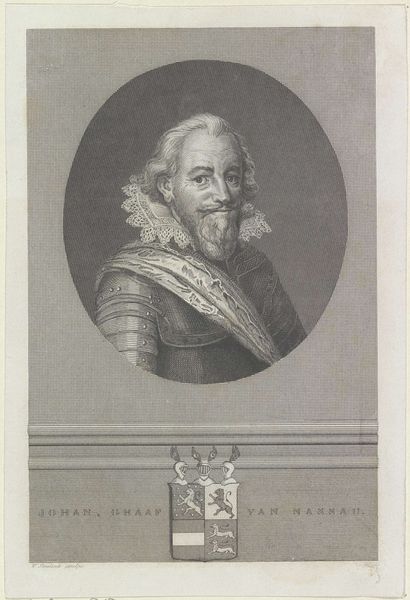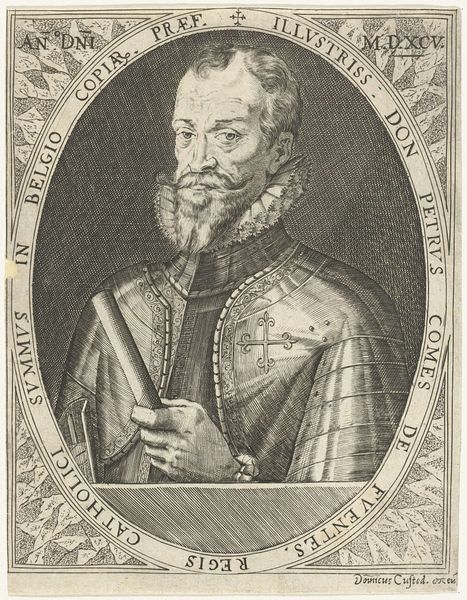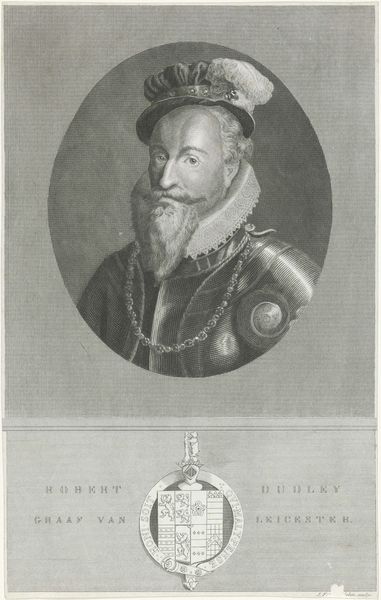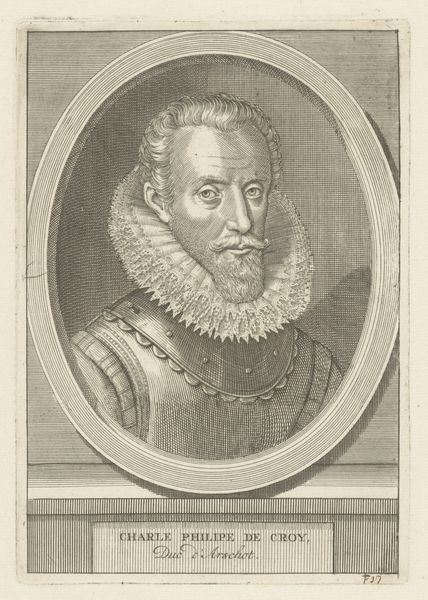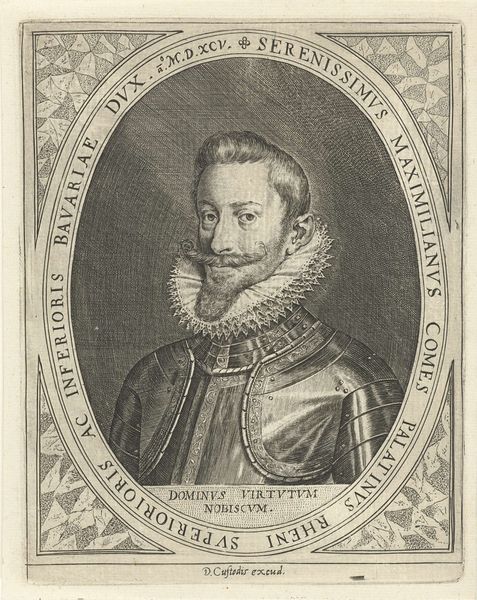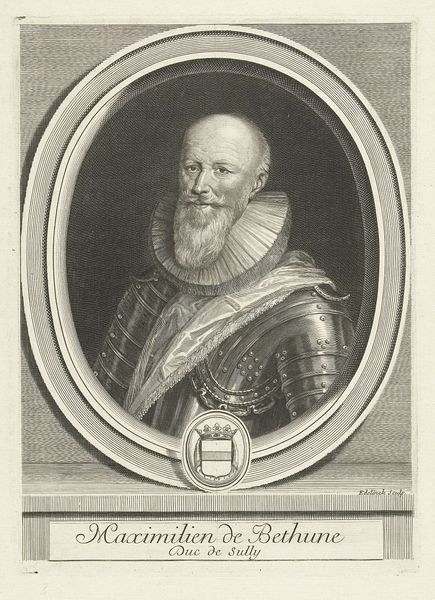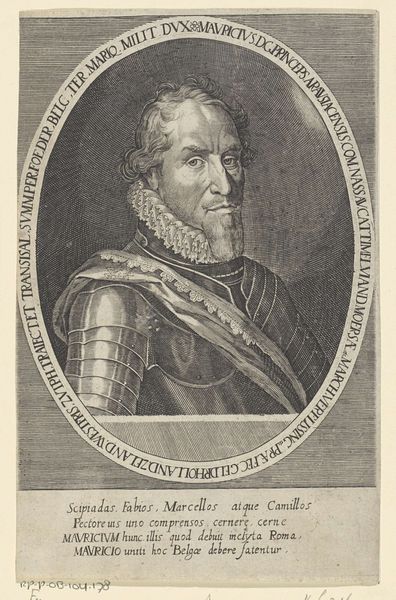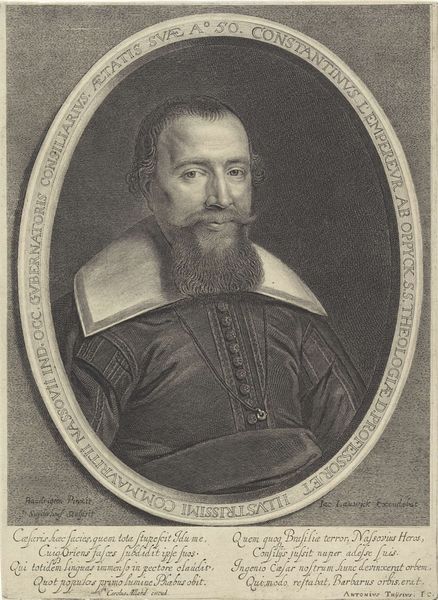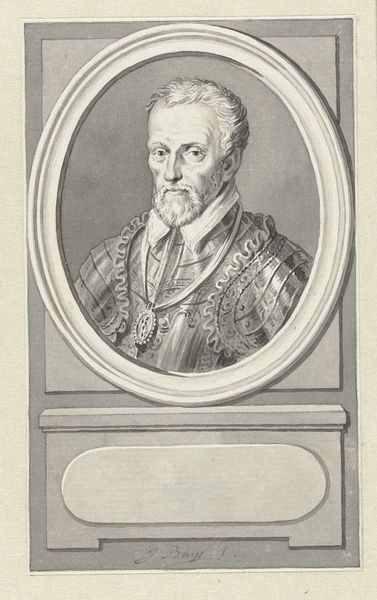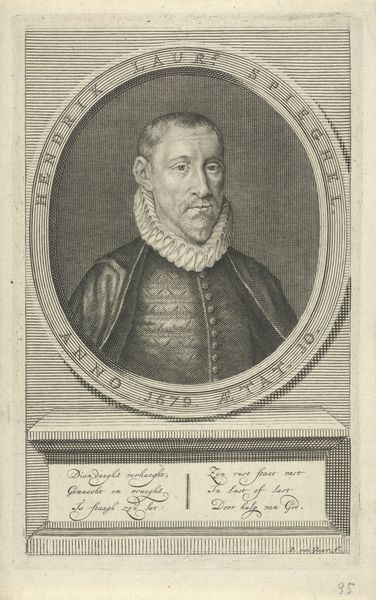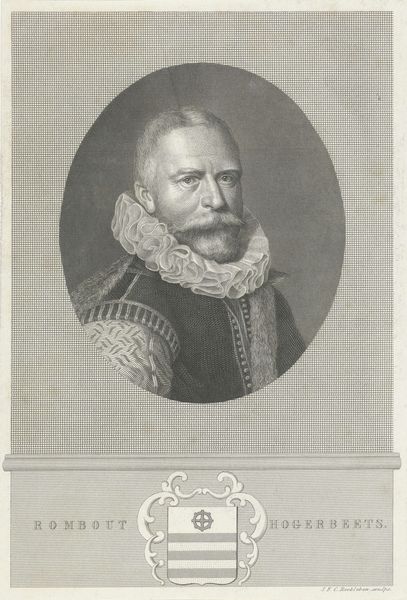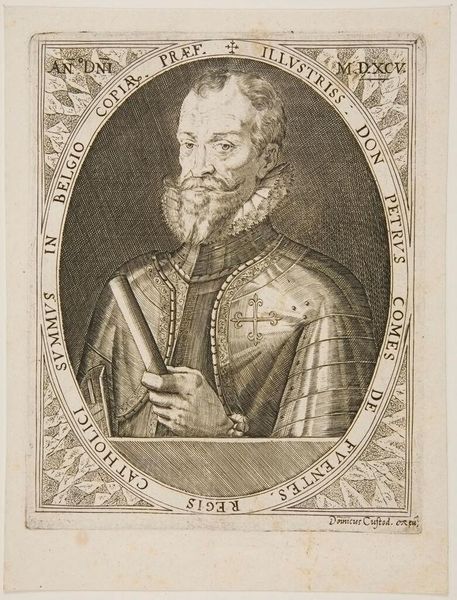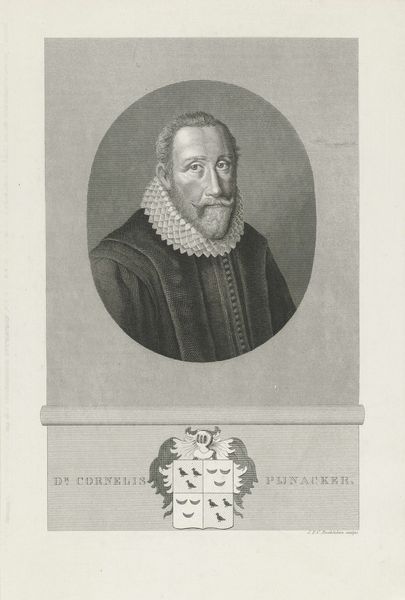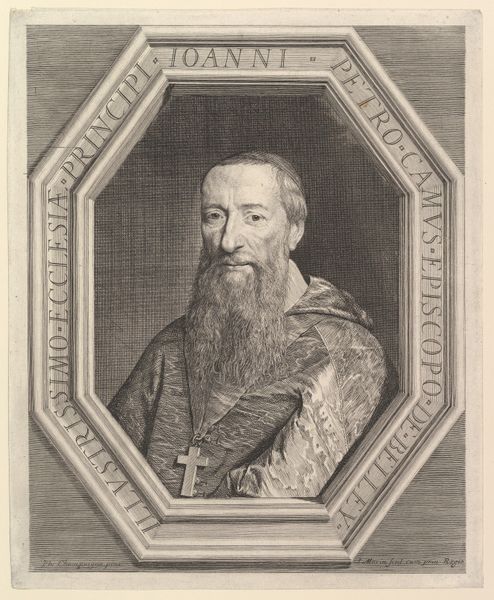
Portret van Ferdinand Alvarez de Toledo, hertog van Alva 1849 - 1851
0:00
0:00
janfrederikchristiaanreckleben
Rijksmuseum
#
aged paper
#
light pencil work
#
vintage
#
reduced colour palette
#
photo restoration
#
light coloured
#
archive photography
#
historical photography
#
desaturated colour
#
old-timey
Dimensions: height 265 mm, width 169 mm
Copyright: Rijks Museum: Open Domain
This is Jan Frederik Christiaan Reckleben’s portrait of Ferdinand Alvarez de Toledo, likely made sometime in the mid-19th century, using a printmaking technique called line engraving. This method involves using a tool called a burin to carve lines directly into a metal plate. The plate is then inked, and the surface wiped clean, leaving ink only in the incised lines. When paper is pressed against the plate, the image transfers. The result is a high level of detail and crispness. The portrait’s visual qualities—its monochrome palette, the stark lines, and the texture of the paper—all contribute to its aesthetic impact. The engraver's skill in rendering textures, from the Duke’s beard to the polished armor, speaks to a tradition of craftsmanship. Line engraving demands precision and control, each mark contributing to the whole image, and, by extension, to the Duke’s persona. Considering the time and labor involved in creating such a print, we can appreciate the work not just as a depiction, but as a testament to the engraver's artistry. This challenges any simple distinction between mere reproduction and original creative expression.
Comments
No comments
Be the first to comment and join the conversation on the ultimate creative platform.
